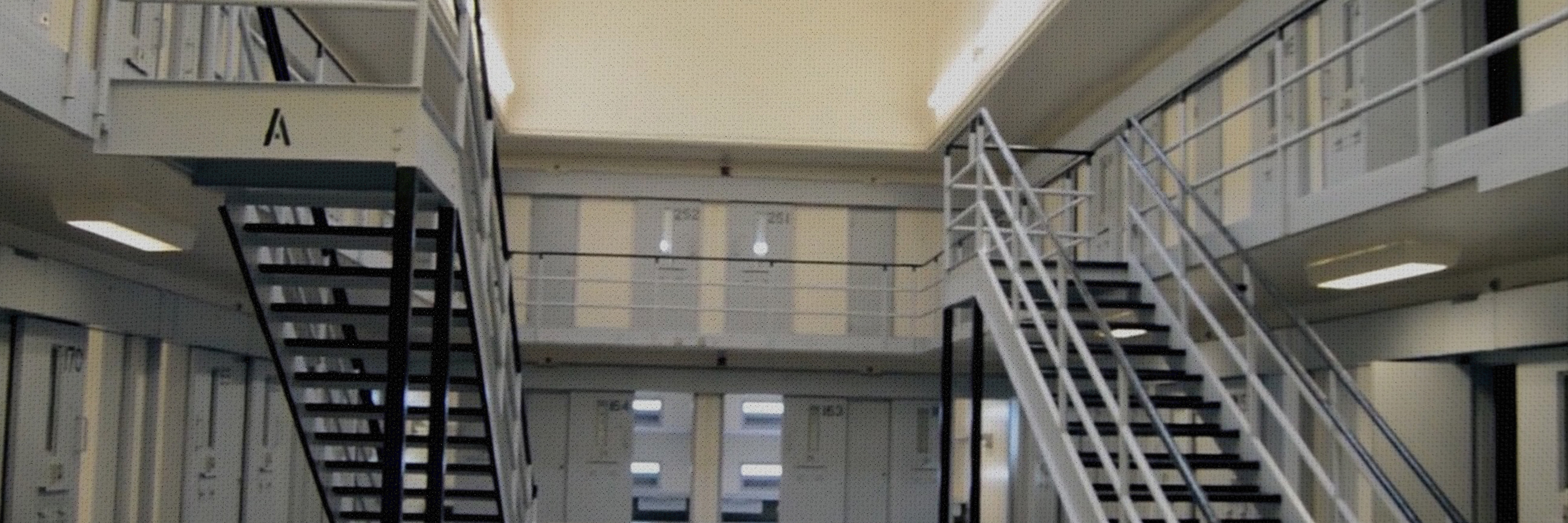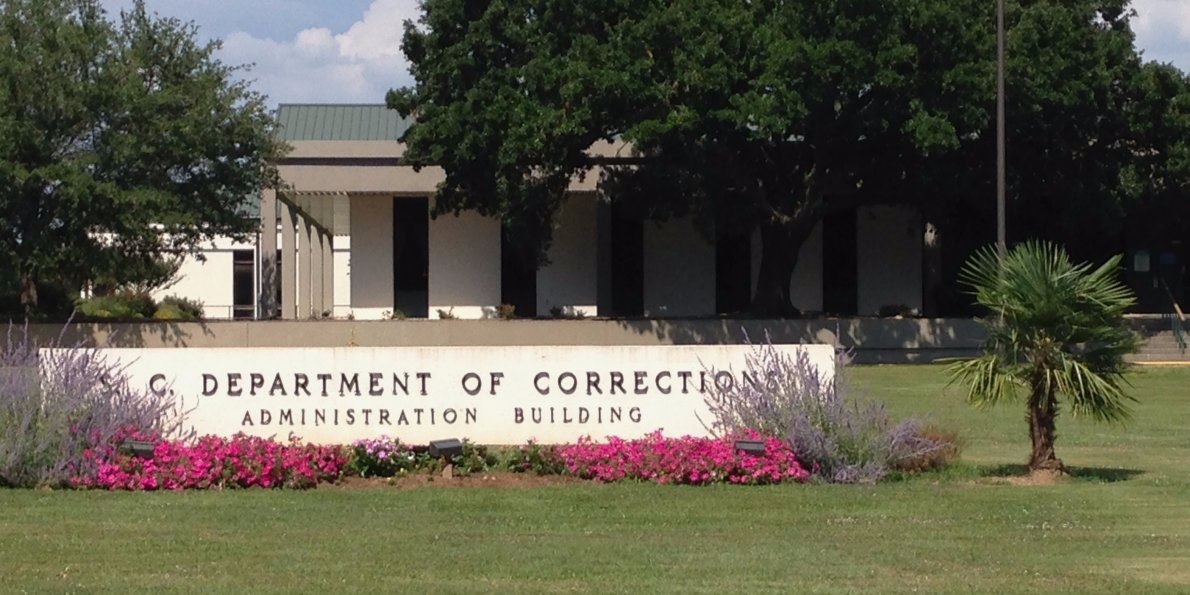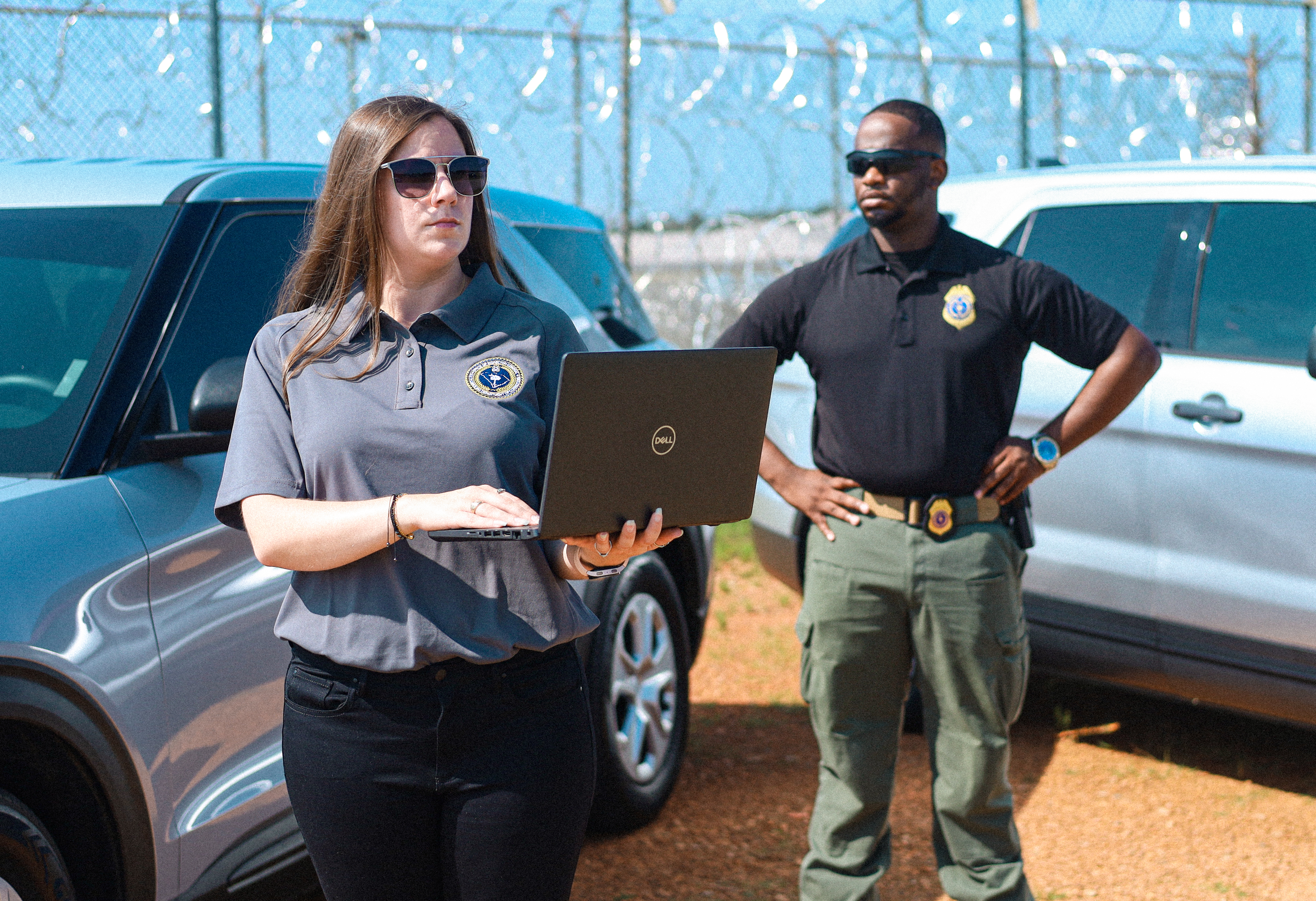
The Department of Corrections has 21 institutions and they are categorized into four distinct custodies: close security, medium security, and minimum security which includes community-based pre-release/work centers for those with Minimum-Out Custody classification. For more information, visit our institutions page.

For information regarding contacting inmates, inmate package program, inmate classification, and family assistance, visit our Family page.
For visitation updates, virtual visitation, rules for visitors, and FAQs, visit our Visitation Information.

The South Carolina Department of Health and Environmental Control inspects our food service operations just as they would any other retail or institutional food establishment. To check our current inspections, visit our Food Grades page.


The South Carolina Department of Corrections Office of Behavioral Health Services is committed to maintaining the health and wellbeing of all offenders incarcerated in the Agency. The primary goal is to provide all inmates access to mental health care, substance abuse care, and Sex Offender Treatment Programs. To the extent of available resources and funding, Behavioral Health Services will provide a continuum of services that will address the related needs of our incarcerated population. Visit our Behavioral Health Services page for more information.
Overview:
The Division of Young Offender Parole and Reentry Services (YOPRS) encompasses both institution- and community-based services for male and female offenders sentenced under the Youthful Offender Act (YOA). Those who are eligible must be less than 25 years of age at the time of conviction and have no previous YOA convictions. The types of eligible convictions are limited to non-violent, Class D felonies or lesser offenses, punishable by 15 years of imprisonment or less, with, under very limited circumstances, two exceptions: violent second-degree burglary, and lewd act upon a child. A Youthful Offender may apply to have their record expunged if they have no other convictions during the five-year period following the completion of their sentence.
Additional areas under the Division of YOPRS purview include:
Juvenile offenders committed to the South Carolina Department of Corrections, per SC Code of Law Section 63-19-1440 and 63-19-1650 and Shock Incarceration.
Division Mission:
The mission of the Division of YOPRS is to reduce recidivism among young offenders by utilizing evidence-based principles/practices that teach accountability, enhance skill development, and promote public safety.
Institution-Based Services:
Young Offender Institutional Services (YOIS)
Young Offender Institutional Services (YOIS) works in collaboration with SCDC’s Division of Behavioral Health/Substance Abuse/Mental Health to provide evidence-based programming for young offenders. Services are individualized and include risk assessments that identify individual criminogenic needs as well as assets, and evidence-based programming that promotes the rehabilitative process. Services focus on cognitive restructuring that provides the foundation needed for successful reentry into the community. Programming includes, but is not limited to, Criminal Thinking, Impact of Crime, Family Focus, Individual/Group Counseling, Community Meetings, GED Preparation/Testing, Substance Abuse Education/Addictions Treatment, Parenting, Job and Career Skills, Intrapersonal Skills and Life Skills.
Shock Incarceration Program
The Shock Incarceration Program as outlined in South Carolina Code of Law; Section 24-13-1310, is a 90-day court-ordered program designed as an alternative to traditional incarceration. The goal of the program is to provide a therapeutic environment where young, non-violent offenders receive substance abuse treatment, academic education, and additional tools to promote their reintegration into the community.
Participation in the Shock Program must be court ordered; to be eligible one must be,
- 17 to 29 years of age upon admission to the South Carolina Department of Corrections;
- Eligible for release or parole in two years or less;
- Have not been convicted of a violent crime as defined in Section 16-1-60 or a "no parole offense" as defined in Section 24-13-100;
- Deemed physically and mentally suitable by a medical professional
The sentencing judge must order a 15-day evaluation to determine medical, emotional and psychological suitability for a male or female offender to be considered for placement in the Shock Incarceration Program. If placement is deemed appropriate, participants must agree in writing to the terms and conditions of the Shock Incarceration Program; including their agreeance to fully participate and complete all mandatory education, instructional programming and physical fitness activities specific to the program.
Community-Based Services:
Intensive Supervision Services (ISS)
Historically, the recidivism rate for Youthful Offenders released from SCDC has exceeded 50%. The Youthful Offender population was considered the most challenging and least successful under parole supervision in the community. In response to this unacceptably high recidivism rate, SCDC implemented a new community supervision service called Intensive Supervision during FY 2011-12.
ISS is based on the nationally recognized Intensive Aftercare Program (IAP) Model that utilizes evidenced-based practices proven to assist in the reduction of recidivism, improved family and individual functioning, and ensure community safety. It is designed to promote community safety, reduce victimization, and ensure the successful reentry of young offenders back into the community.
Through ISS, an Intensive Supervision Officer (ISO) works in the community and is assigned to each Youthful Offender upon admission at SCDC. Unlike the traditional parole officer, an ISO acts in a proactive manner in the life of each offender under his/her supervision and manages a caseload of no more than 20-25 individuals.
The role of the ISO is multi-faceted but can be captured in the following basic job duties:
- Work with SCDC institutions to assess each offender's risk/assets and develop and plan for reentry services
- Target and utilize community resources and services to reduce the likelihood of re-offending
- Maintain frequent (at least weekly) contact with each offender in the community to ensure a structured and productive daily schedule
- Use progressive supervision practices to hold offenders accountable and keep them in the community
- Provide an effective blend of intensive surveillance and therapeutic services
- Work to ensure that offenders make reparations to their victims and communities, including paying restitution and performing community service work
- Work to ensure that offenders lead crime-free lives and resist gang affiliation
Intensive Supervision Administrative Release Authority (ISARA):
YOPRS has the legal authority to conditionally release any Youthful Offender from SCDC. This authority is managed through the ISARA. The ISARA is comprised of a manager and a three-member panel of corrections professionals, including a victim representative, which considers and approves/disapproves the release of offenders to Intensive Supervision in the community. Recommendations from the affected correctional institution, community and victims are requested and considered in the release process.
The ISARA also considers and approves/disapproves any parole violations that may require an action to revoke an offender’s parole.
For More Information
Please contact:
Nikeya Chavous, Division Director
Division of Young Offender Parole and Reentry Services
4444 Broad River Rd, Columbia, SC 29210
YOPRS@doc.sc.gov

For those individuals that would like more detailed information for use in research or media reports, please see our Research page. The Research page also includes the procedure regarding Freedom of Information Requests.
For media inquiries, please contact:
Chrysti Shain
Director of Communications
(803) 413-8206
shain.chrysti@doc.sc.gov






